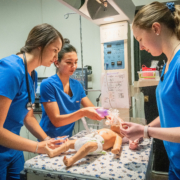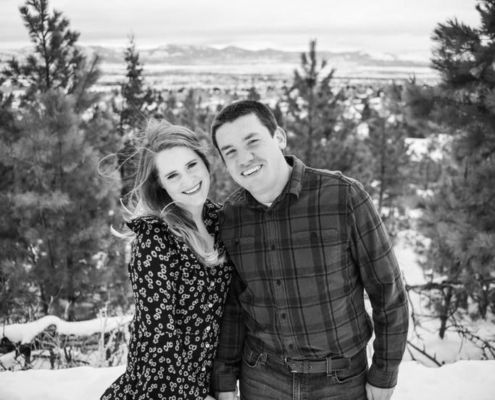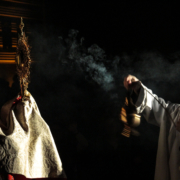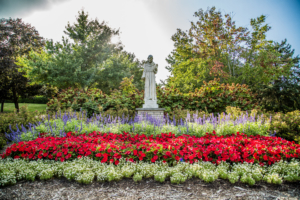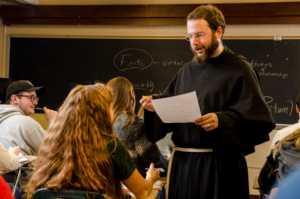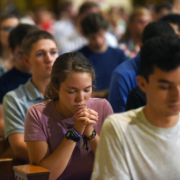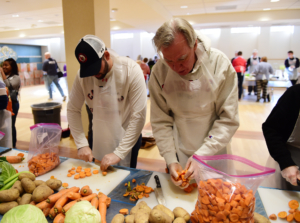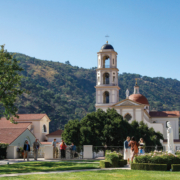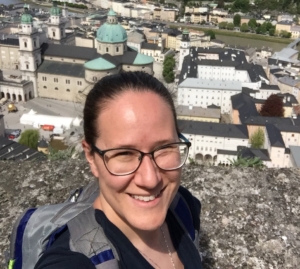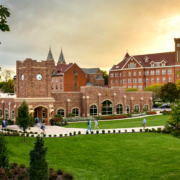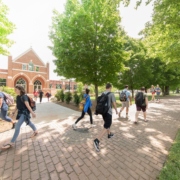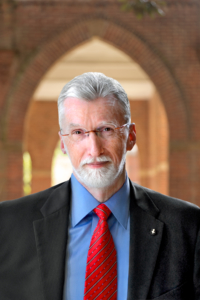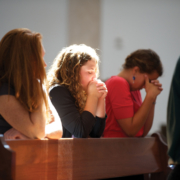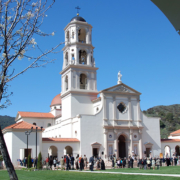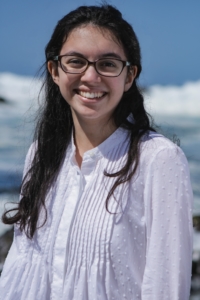Liberal Arts, Science, Technology ‘Work Together,’ Says UST Houston President
Students interested in deepening their understanding of the Catholic intellectual tradition while also embracing developments in the sciences will find a beautiful harmony of both at the University of St. Thomas in Houston, Tex. Dr. Richard Ludwick, president of The Newman Guide-recommended University, explains that Catholic universities have the “responsibility to search for meaning in these developing fields.”
The Newman Society recently asked Dr. Ludwick to discuss the University of St. Thomas’s majors and initiatives in the sciences and how the University is a leader in uniting faith and science.
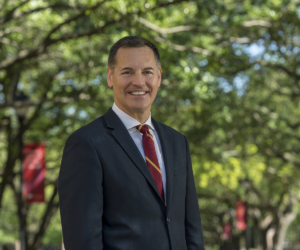
Dr. Richard Ludwick
Newman Society: The University of St. Thomas is unique among colleges in The Newman Guide with its variety of majors and initiatives in science and technology, while also embracing the liberal arts and the Catholic intellectual tradition. Can you tell us how the University balances this approach?
Dr. Ludwick: It’s not so much of a balance as it is a beautiful symbiosis. The liberal arts can actually work together with science and technology for the benefit of both and for all humanity. That is an essential part of the Catholic intellectual tradition and the part that will continue to lead us forward. For 75 years, the University of St. Thomas has been bringing together the greatest minds of our time to study and teach philosophy and theology and the many other disciplines that we treasure in an education grounded in the liberal arts, but the most essential question is how do we use that expertise not just to study the past but to win the future? How can we call upon the 2,000-year repository of great Catholic thought to help us understand and leverage these unprecedented breakthroughs in science and technology for the benefit of the human person? Ex corde Ecclesiae doesn’t just tell us we should do this, it tells us that we must. For the authentic good of all humanity, it is our responsibility to search for meaning in these developing fields. It’s also a lot of fun, and it continues to demonstrate daily to students the importance and relevance of our faith in the modern world.
Newman Society: What are some of the University’s new digital ventures, and how are you drawing inspiration from St. Maximilian Kolbe for them?
Dr. Ludwick: In his time, St. Maximilian Kolbe built the largest media apostolate in human history by leveraging radio and print. Not many people know that he even had plans to start a movie studio! Those were the platforms that he had available to him at the time. Just imagine what he would have done today using YouTube, social media, Virtual and Augmented Reality, learning management platforms and a host of other spaces across the digital landscape. Just as with science and technology, we are called to use these tools for the authentic good, to advance society. Guided and inspired by St. Maximilian Kolbe, we have opened the USTMAX Center, a micro-campus concept; the St. Maximilian Kolbe Innovation Network for integration of technology and innovation, focused on the dignity of the human person; and MAX Studios, a new digital apostolate at the University of St. Thomas that seeks to encounter the culture with a missionary spirit. We create podcasts and shows with a focus on intentional dialogue that help us understand our faith and role in this world. We are also forming partnerships with other apostolates for innovation and technology, as well as businesses, including e-sports, for pathways of evangelization.
Newman Society: What do you think makes the University attractive to Catholic students in the 21st century?
Dr. Ludwick: Catholics come to St. Thomas now in growing, record numbers! They want and need more in their formation and they get it: Jesus Christ, the living love of the Father. They tell us they need a coherent core curriculum, not a buffet of unrelated classes, so they can answer timeless questions and make sense of the world. They want the best faculty and relevant majors, all in an authentically Catholic culture that is vibrantly alive. That’s what attracts them to UST. The special bonus is that they get to do all that in one of the world’s top cities, Houston. Our town is the biggest little town ever. It is a community that best reflects the entirety of our human family, and students get the chance to come together with Catholics from all across the globe. We also enjoy the food that such a mix of cultures brings. With the nation’s largest medical center just down the street, amazing museums and unparalleled career opportunities, it’s no wonder that Houston is one of the fastest growing cities. Students get access to all of that from our serene, leafy campus in the middle of the arts district. Once prospective students visit our campus, they almost always make the decision to stay.
Newman Society: Looking forward to the future, how can the University of St. Thomas be a leader in uniting faith and science?
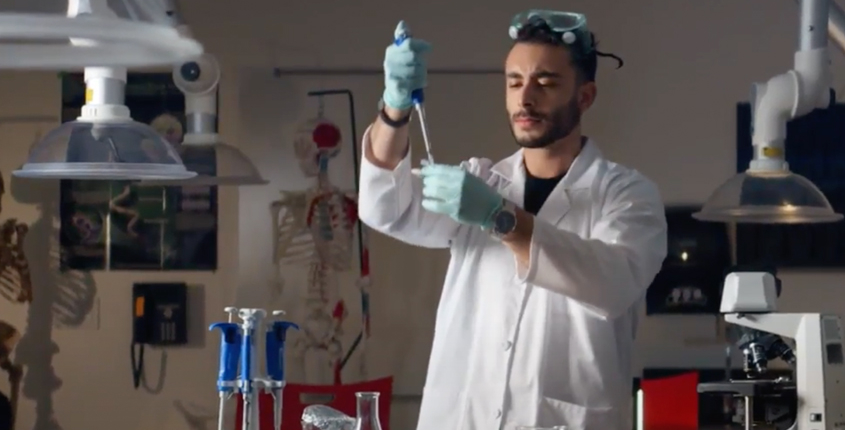
Photo via University of St. Thomas – Houston
Dr. Ludwick: There is a void to be filled in society, as science and technology continue to rocket forward at accelerating speed. We must keep pace. Armed with our values and a core curriculum that sets students up to ask the big questions, we will make sure that the human person remains at the heart of research and innovation. Whether our graduates go on to be priests, nurses, theologians, engineers or philosophers, they will be a force for good in the world. Ex corde Ecclesiae calls us to a continuous renewal as both “universities” and “Catholic.” As we navigate this bold new world, guided by that apostolic constitution, we will continue to engage the unknown without fear, but instead knowing that our questions will always lead to the Truth. It is that spirit, which we often refer to as the Spirit of St. Thomas, that will lead us into the future for centuries more to come.


